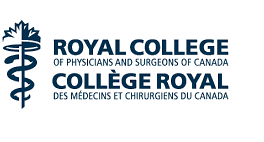About The Committee
The CSN Scientific Committee was set up to continue the work of a prior ad hoc committee arising from the original Horizons 2000 Conference with the main goal of advancing the cause of kidney research in Canada. Currently, the CSN Scientific Committee is chaired by Dr. Norman Rosenblum assisted by Dr. Neesh Pannu (Vice Chair).
Visit the full Scientific Committee membership list.
The Scientific Committee's mandate includes helping promote development of capacity for kidney research in Canada, including recruitment and retention of scientists, development and support of infrastructure, training, communications, liaison with academic centers and other national agencies, including Kidney Foundation of Canada and the Canadian Society for Transplantation.
During the past 2 years the Committee has focused its efforts on developing a national research strategy to enable the Canadian nephrology community to respond to emerging opportunities including the CIHR Strategy for Patient-Oriented Research.
The Committee undertook an analysis of gaps in Nephrology research with great potential for development in the present Canadian nephrology research environment and for collaboration across stakeholders including funding agencies and provincial renal agencies using previous analyses performed via Horizons Conferences and broad consultation with stakeholders in the renal community.
This resulted in a decision to focus strategic efforts on ‘pre-dialysis chronic kidney disease’ as a theme. A workshop aimed on further developing a supporting rationale for this theme and major research objectives was organized in partnership with the Kidney Foundation of Canada and the CIHR Institute of Nutrition, Metabolism and Diabetes and held in in November, 2013. The proceedings of the workshop provide a basis for the work of a national steering committee established in May, 2014. The National Steering Committee is currently engaged in developing a national research strategy for pre-dialysis chronic kidney disease as a means to respond to expected requests for applications from the CIHR.
The National Steering Committee organized a meeting in November 2014 including 52 participants from across Canada. In this planning meeting, participants developed the framework, identified the necessary infrastructure to establish a national patient-oriented research network in chronic kidney disease, and finalized consensus on the highest priority questions that best addressed the questions previously identified by patients, caregivers, clinicians and health care decision makers. The Canadian Society of Nephrology (CSN) and the Kidney Foundation of Canada (KFOC) provided financial support for this necessary strategic planning meeting. A workshop report is available for download below.
Download Workshop Report [PDF]
In June 2015, another workshop was held in Toronto which brought together key partners in kidney disease, in addition to patients, policy-makers and researchers in order to further advance planning for the Canadians seeking Solutions and innovation to overcome Chronic Kidney Disease (Can-SOLVE CKD) Network.
Download June 2015 Workshop Report
Committee Members

Dr. Michael
Walsh
Chair, Scientific Committee

Dr. Rita
Suri
Past-Chair, Scientific Committee
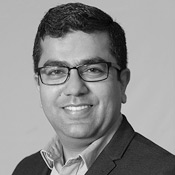
Dr. Rahul
Chanchlani

Dr. David
Clark

Dr. David
Collister
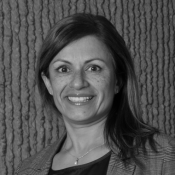
Dr. Maoliosa
Donald

Dr. Louis
Girard

Dr. Lakshman
Gunaratnam
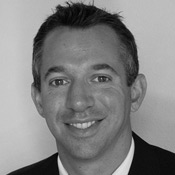
Dr. Gregory
Hundemer
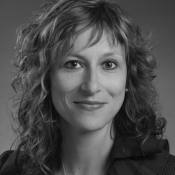
Dr. Ana
Konvalinka

Dr. Ngan
Lam

Dr. Caroline
Lamarche

Dr. Daniel
Muruve

Dr. Shaifali
Sandal

Dr. Karthik
Tennankore
BACKGROUND
Research relevant to individuals with kidney and urological diseases is found in every biomedical research-intensive University in Canada, as well as many of the hospital-based research institutes. For the first time, Canadian researchers from all geographic regions and disciplines gathered at the Horizons 2000 and Horizons 2015 Consensus Strategic Planning Conference along with major stakeholders such as the Kidney Foundation of Canada, as a prelude to the creation of the Canadian Institutes for Health Research (CIHR).
The Horizons 2000 conference identified a critical goal to be achieved over the next 5-10 years: Building research capacity in the fields of kidneys/urological disease/transplantation through enhanced communication, collaboration and funding. Since the CIHR has not provided a specific mandate for targeted research in kidney/urological disease and transplantation, the Kidney Foundation of Canada Research Council recommended that a National Research Coalition be struck (co-chaired by Drs. Patrick Parfrey and David Ludwin) to identify the next steps in advancing the recommendations of the Horizons 2000 Conference. The members of this coalition represent leadership in all areas of kidney disease and transplantation research. A task force was struck to identify potential initiatives, and a final report was submitted to the Kidney Foundation in June 2002. This report identified new opportunities for kidney research in Canada, as well as strategies and tactics to increase research capacity.
The National Research Coalition Task Force recommended that enhanced communication, collaboration and funding for kidney research across Canada requires an organizational structure led by scientific investigators. The Canadian Society of Nephrology (CSN) represents the most appropriate organization to perform this task. In 2002, the CSN created an Ad Hoc Scientific Committee to focus on strengthening kidney research capacity in Canada. In 2005, the CSN reaffirmed the need for the Scientific committee, reconvened the committee and created a standing committee of the CSN.
Between 2002-2005, the committee focused its work on the design, development, and implementation of the Kidney Research Scientist Core Education and National Training Program (Krescent), a unique collaboration between the CSN, KFOC, CIHR, industry, and other stakeholders, which will enhance research training capacity over the next 6 years.
In November 2007, members of the renal research community assembled for a strategic planning initiative called Horizons 2015: Enhancing Excellence and Capacity in Kidney Research, with the mandate to define both the strategic directions and mechanisms for increasing capacity in renal research over the next 8 to 15 years. This meeting was a co-ordinated effort, resulting from collaborations between the Kidney Foundation of Canada, the Canadian Institutes of Health Research (Institute of Nutrition, Metabolism and Diabetes), the Canadian Society of Nephrology, and the Canadian Society of Transplantation. After consideration of the Horizons 2015 Consultation Report, the Kidney Research Recommendation Group (KRG) has been charged with moving forward the recommendations and priorities identified by the Horizons 2015 meeting. The CSN Scientific Committee will work with the KRG to provide input into this process.
STATEMENT OF OBJECTIVES
The CSN is the national voice of academic and clinical nephrology in Canada, and the Society has increasingly supported research training and education. The CSN created a standing Scientific Committee, to continue the work of the Ad Hoc Committee to advance the cause of kidney research in Canada, with the following longterm objectives:
-
The CSN Scientific Committee will continue to promote kidney research in Canada by focusing on the following issues:
A. Human Resource issues: retention and recruitment of scientists, attention to gender-specific recruitment issues, and appropriate salary support mechanisms to improve infrastructure funding for local research initiatives.
B. Advocate for the development of infrastructure to support multicentre clinical research in Canada.
C. Improved availability and funding of research training positions.
D. Partnerships with industry and other stakeholders, including the Kidney Foundation, to increase kidney research funding and capacity.
E. Improving communications amongst kidney researchers in Canada.
F. Development of a website for Canadian Kidney Research containing information about research interests and available technologies, funding opportunities, research positions, highlights etc…
G. Establishing liaisons and representation, as appropriate, within other academic societies in Canada, which involve kidney research as part of their mandates (eg. CST, CSPN, CHS), in order to showcase kidney research and foster multi-disciplinary clinical trials.
-
The CSN Scientific Committee will endeavor to increase the attractiveness of the CSN to both basic and clinical research scientists, and to provide a forum for researchers to discuss policy issues.
EARLY DELIVERABLES
Given the current membership of the CSN Scientific committee and considering the areas of need identified within the Horizons 2000 report, the CSN Scientific committee has identified several short-term goals, with relevant action plans designed to enable fulfillment of these goals:
| Short-Term Objective | Action Plan |
|---|---|
| Enhance and promote clinical research within Nephrology |
|
| Increase the CSN's role as an advocate for funding for Nephrology research |
|
| Development of infrastructure to support multi-centre clinical trials in Canada |
|
| Determine if there are alternate ways in which the CSN can support clinical research |
|
REPORTING STRUCTURE
The Scientific Committee of the CSN will report to the President and the Executive of the CSN. The committee will hold meetings by teleconferences and prepare a report for submission to the President and the Executive of the CSN. This report will also be communicated to the Kidney Foundation of Canada and the Chair of the Kidney Foundation Research Council.
MEMBERSHIP ON THE CSN SCIENTIFIC COMMITTEE
The proposed members of this committee will represent a diversity of basic and clinical kidney research interests across Canada. Members of the committee (and Chairperson[s]) will be selected by the President of the CSN.
TERMS OF MEMBERS/CHAIR
Members will normally serve on this committee for a period not exceeding 3 years. Initial members may be asked to serve shorter terms (1-2 yrs), in order to provide continuity to the committee membership. The Chairperson will serve for a period of 3 years, and for no more than 2 consecutive terms.

